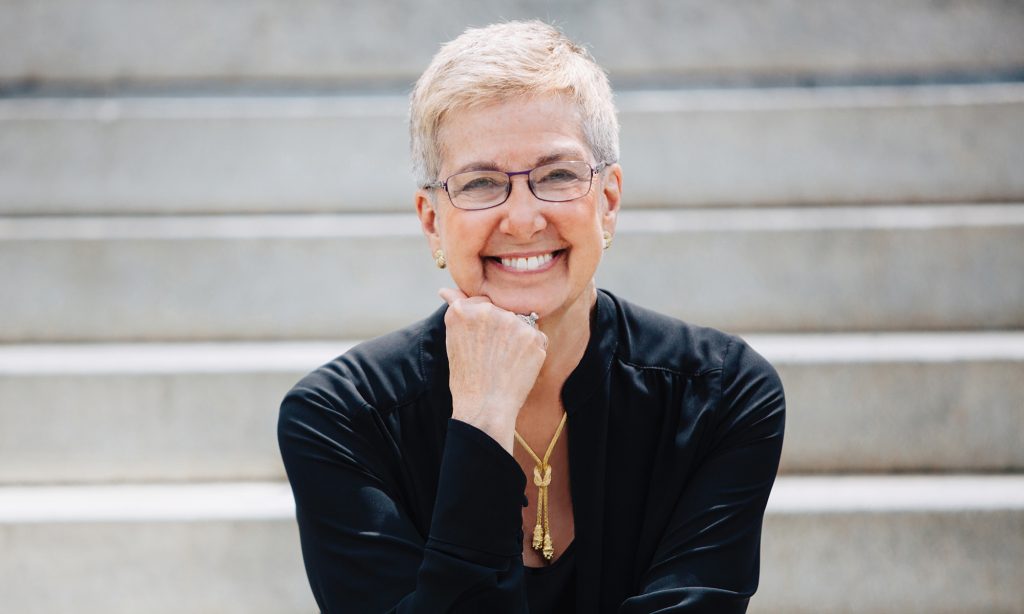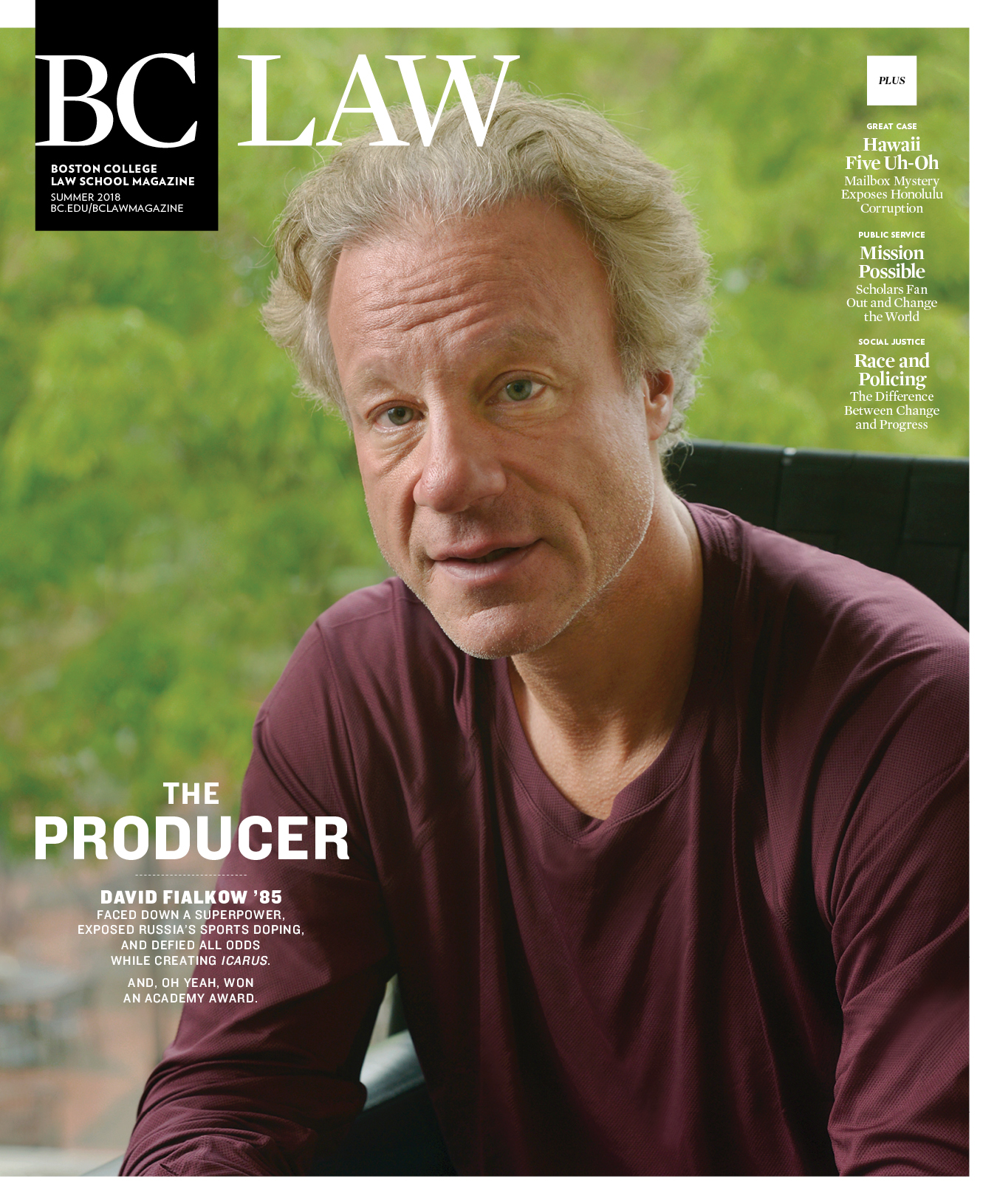Student Snapshot
Provenance: Dorchester, Mass. Degrees: BA, Brandeis University, 1966; Masters in Art of Teaching, Harvard, 1967; MD, UMass Medical School, 1984; MBA, UPenn Wharton School of Business, 2006. Pre-Law: Taught high school and junior college science; associate anesthetist and assistant professor in anesthesia, Massachusetts General Hospital and Harvard Medical School; chief surgical services officer, Lahey Clinic. Family: Married fifty years this July 4, two forty-something sons, four grandchildren. Extra Credit: Ran successful calligraphy business, paints in oils and watercolor. Life Lesson: “Whenever I hear ‘trust me’ I see a red flag. To me it means just the opposite.” Guilty Pleasure: Binge-watching Breaking Bad and Game of Thrones. Role Model: Professor Ingrid Hillinger. First Book to Read After Finals: Stephen Hawking’s A Brief History of Time.
My family was old school. As a girl, you could be a teacher, a nurse, or a secretary, so that if, God forbid, you didn’t get married, you could take care of yourself. So I became a teacher, but I always thought I’d like to be a doctor.
When our sons were five and eight, my husband said, “Why don’t you do what you’ve always wanted to do?” So at age thirty-six I was accepted to UMass Medical School. There were five of us older women who sat in the left front of the auditorium, and the rest of the class called it the “suburban housewife section.”
I chose anesthesia as my specialty. Medicine’s a wonderful profession and I absolutely loved it. But there’s a time to stop, when it takes three or four days to recover from a night in the operating room. In 2007, armed with new knowledge from my MBA at Wharton, I took on a managerial role as chief surgical services officer at the Lahey Clinic.
When my late mother was failing, I was her main caregiver. Even with medical knowledge, I found the system’s complexity overwhelming. Health care proxy, durable power of attorney, informed consent—I had no idea about these legal issues. I like school, and I like to learn, so I applied to law school, hoping I can help elderly people better navigate this environment, perhaps as a patient ombudsman.
I’m a science person, so I’m used to less reading and more experimenting. With E=mc2, with DNA, there’s certainty, but in the law there are so many human variables and so much room for interpretation, and that has been challenging for me.
In Con Law II we read about segregation laws. I lived through some of that. On vacation in New Hampshire, I remember places where a black person or a Jew [like me] couldn’t go. I’ve seen society evolve.
Being an older student is fabulous. There’s a different emphasis on what’s important. It’s not critical to get the top grade; it’s what you can learn from the class, what turns you on, what you enjoy, what you can do with it.



